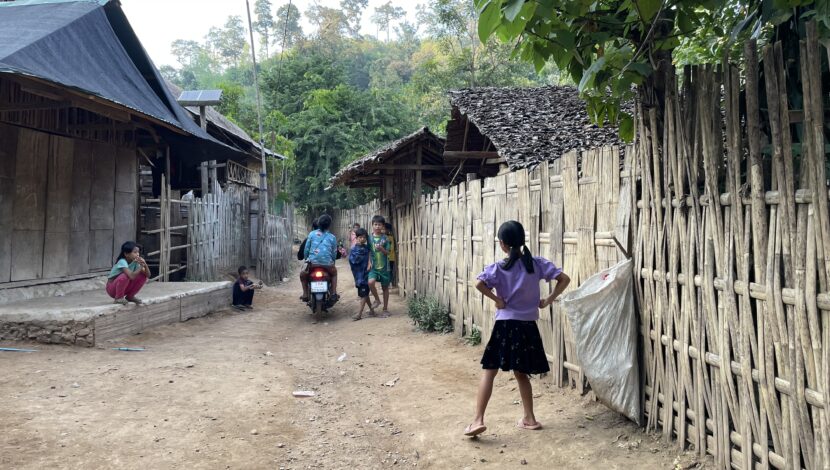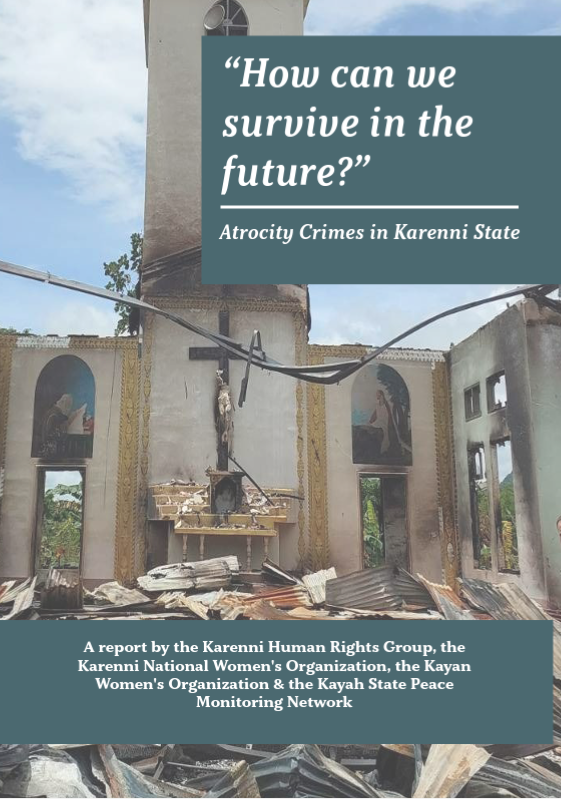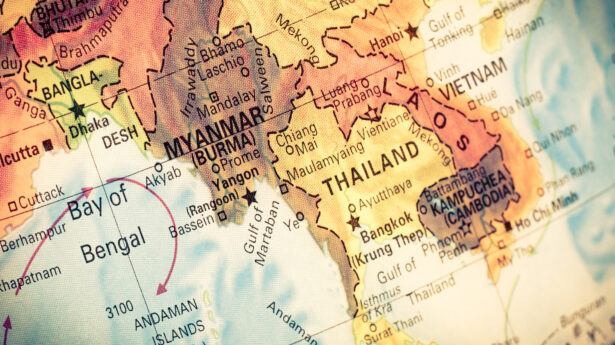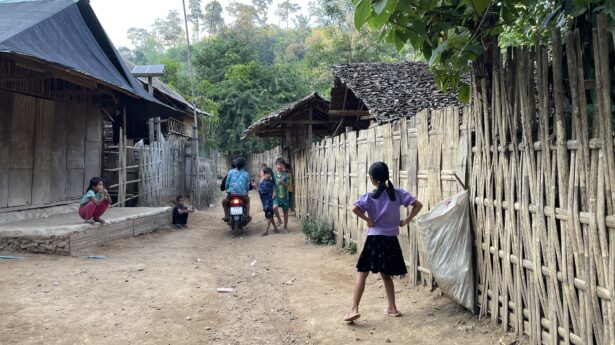The Unitarian Universalist Service Committee advances human rights through grassroots collaborations.
“How Can We Survive in the Future”: Atrocity Crimes in Karenni State 2023 Report

February 7, 2023
To live in Burma (also known as Myanmar) today is to live with the constant threat of military violence against yourself, your home, your livelihood, and your family. Since its attempted coup in 2021, the Burmese military has employed deadly acts of terror and war crimes against the civilians of the country in an attempt to seize and maintain power. However, rather than succeeding in quietly oppressing Burmese civilians, the military junta has succeeded in spurring a nationwide pro-democracy revolution calling thousands of civilians from throughout the country to leave their homes, families, and jobs to fight alongside one another against the junta. In response, the junta has employed its counter-insurgency strategy known as the “four cuts.” This deliberately targets civilians, viewing them as the support base for armed resistance groups, and aims to cut off access to four essentials: food, funds, intelligence, and recruits.
In Karenni State alone, over 214 civilians have been murdered by the junta due to the use of landmines, airstrikes, mortar shelling, and circumstances in police custody . Moreover, 1,190 homes in 87 Karenni towns, wards, and villages have been either severely damaged or completely destroyed by junta forces.

These figures come from a recent joint report co-authored by the Karenni Human Rights Group (KnHRG), Kayan Women’s Organization (KyWO), Karenni National Women’s Organization (KNWO), Kayah State Peace Monitoring Network (KSPMN), and supported by the U.S. Campaign for Burma (USCB) and UUSC. The report documents the multiple atrocities and crimes committed by the junta against civilians in Karenni State and calls for action by the international community. Within the report, researchers noted the types of violence used by the junta against the people of Burma and found that violence typically takes the form of landmines, airstrikes, and mortar shelling, and that the majority of civilians who died since the start of the conflict were killed in custody. Further, the report calls attention to the illegal act of abducting civilians of all ages to be used as forced labor and human shields.
The report also tells the stories of many individuals who have been affected by the actions of the junta. One woman stated:
“In our village, we are not safe, so we had to flee. No one dares to return to the village because there are landmines and villagers are afraid that they will step on them and be harmed. Until now, the military junta is still living around our homes in the village. There is no security. We are afraid to go home and we don’t even know when this would be possible.”
Currently, about 180,000 Karenni people have been displaced both internally within Burma as well as into neighboring countries like Thailand. This comprises about 40% of the total Karenni population of 420,000. has been displaced . In Burma, these individuals live in internal displacement camps that lack sufficient shelter, food and water, and other forms of safety. Another woman interviewed for the report told the story of how her camp was the target of a military airstrike at 1:00 a.m. one morning.
As the fighting progresses, Burmese civilians become increasingly at risk of death, disease, and trauma, creating a major humanitarian crisis. As such, Burma needs foreign support to help resist the junta and hold it accountable for its actions. Within the report, the organizations call for:
- Fully integrating gender equity within the international response to the junta. This includes paying special attention to the rights of women and children, protecting against rape and gender-based violence, counting on the equal participation of women as key stakeholders, and rehabilitating the needs of women and children.
- Closely consulting local civil society groups to guide the development of an appropriate and effective response.
- Directly fund local civil society organizations to meet the immediate humanitarian needs of the those in Karenni State.
- Increase funding to local organizations for human rights education, human rights documentation and advocacy work, and long-term psychosocial support.
- Impose further coordinated targeted sanctions against the military and its leadership, specifically targeting Myanmar Oil and Gas Enterprise, a major funder of the junta’s aggressive activities. Read an article in Myanmar Now penned by UUSC staff member Myra Dahgaypaw on the need to impose sanctions.
- Impose a coordinated comprehensive global arms embargo on the Burmese military
- Sanction aviation fuel supply to the Burmese military to limit its ability to launch airstrikes against civilian populations, including internally displaced persons (IDPs)
- Support international justice and accountability efforts by lobbying for these crimes to be addressed by the International Criminal Court (ICC).
UUSC has worked in Burma for more than a quarter of a century and we continue our commitment to democracy, peace, and dignity within the country.
Image Credit: UUSC

